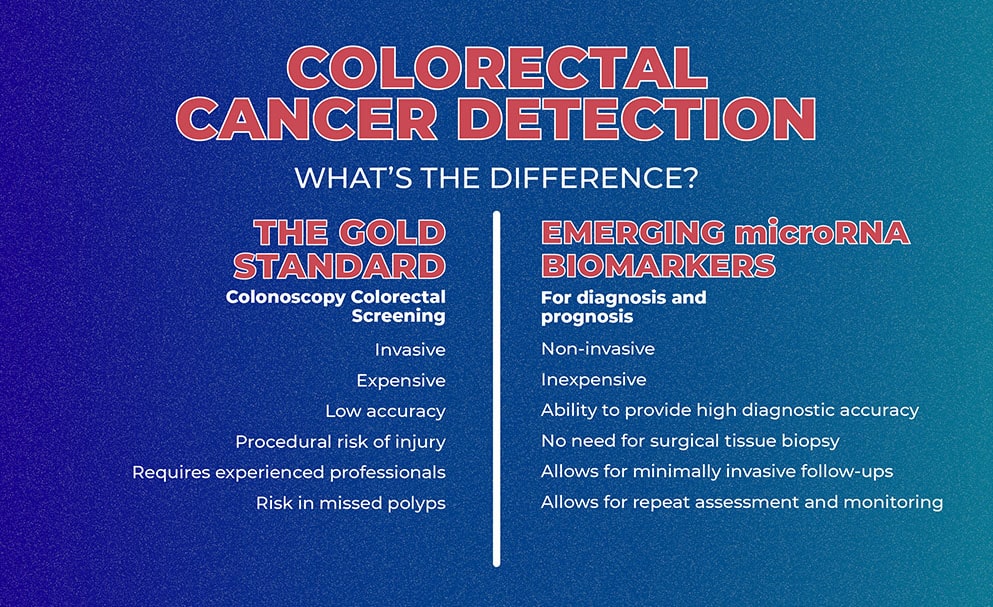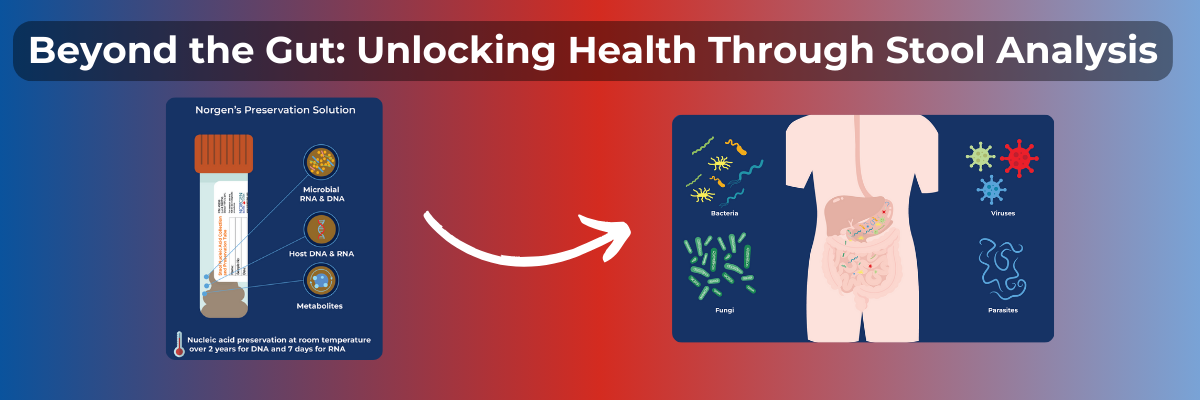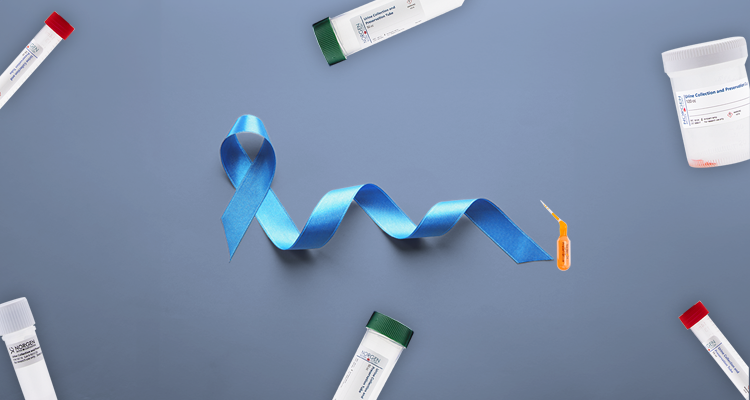Let's talk Numbers...
If experts say that colorectal cancer (CRC) is one of the most preventable and often curable diseases, then why does it still consume 10.2% of all cancer cases globally?
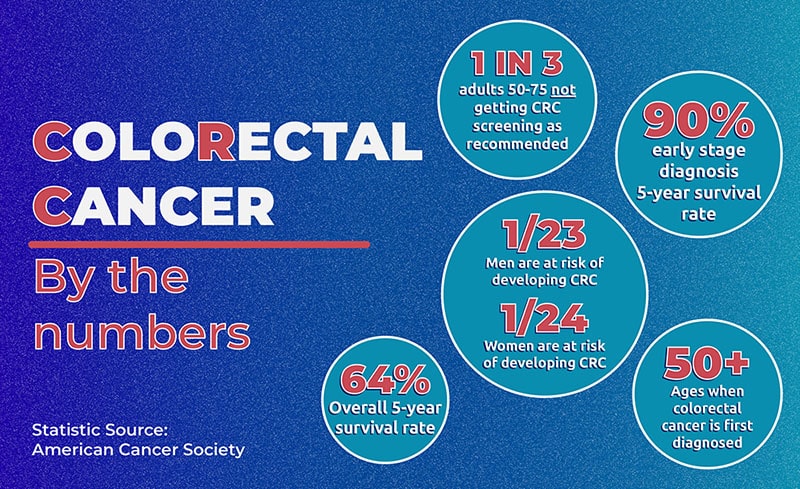 In 2020, 26,900 Canadians alone were diagnosed with CRC representing 12% of ALL new cancer cases in Canadai. CRC is the third most common cancer represented in both men and women globally at 10.2% of all casesii, which is why the month of March is used to acknowledge and raise awareness for the disease.
In 2020, 26,900 Canadians alone were diagnosed with CRC representing 12% of ALL new cancer cases in Canadai. CRC is the third most common cancer represented in both men and women globally at 10.2% of all casesii, which is why the month of March is used to acknowledge and raise awareness for the disease.
NORBLOG
Want to hear more from Norgen?
Join over 10,000 scientists, bioinformaticians, and researchers who receive our exclusive deals, industry updates, and more, directly to their inbox.
For a limited time, subscribe and SAVE 10% on your next purchase!
SIGN UP
Curability depends entirely on early detection. In February 2021, a team of researchers made a revolutionary discovery that could change the game - let’s get into it.
It's about Nina
Currently, the gold standard approach for CRC screening is colonoscopies, which is not the most comfortable solution.
Let’s talk about Nina. Nina is a 55 year old patient who recently had a colonoscopy and discovered she had a large polyp (small clumps of cells formed on the lining of the colon), which needed to be removed. Once removed by her physician, she was told she was in the clear and there was no risk of cancer!
A year later, Nina was experiencing pain and was advised to get a second examination. She decided to postpone for another 10 months due to anxiety about the procedure. The initially missed cancerous polyp was removed and they determined that Nina had an advanced stage of cancer.
Traditional Methods
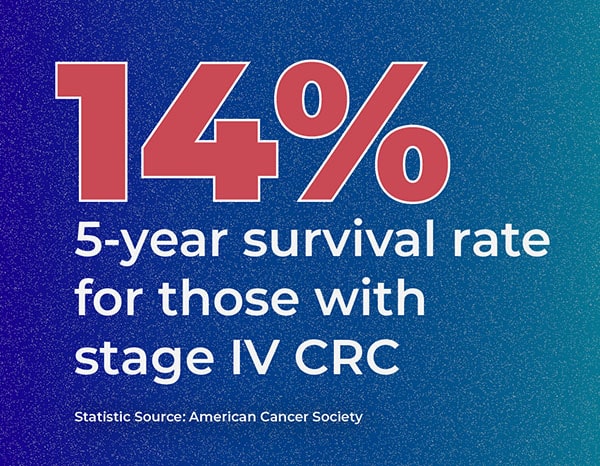 While the traditional colonoscopy procedure reduces mortality rates, it does not come risk free. Colonoscopies are highly invasive, painful, and if done incorrectly, can cause internal injury and bleeding. Additionally, 6% of colorectal cancers are missed within the first 5 years of a ‘clean report’iii and 17% - 28% of polyps are missed during the examinationiv, as seen with Nina.
While the traditional colonoscopy procedure reduces mortality rates, it does not come risk free. Colonoscopies are highly invasive, painful, and if done incorrectly, can cause internal injury and bleeding. Additionally, 6% of colorectal cancers are missed within the first 5 years of a ‘clean report’iii and 17% - 28% of polyps are missed during the examinationiv, as seen with Nina.
While colonoscopies work for patients that get diagnosed at the early stages of the disease, the estimated 5 year survival rate of patients diagnosed at the advanced stage is only 14%ii.
What's the solution?
Revolutionizing the Healthcare Industry
In attempts to increase early detection, researchers have spent countless hours studying biomarkers and they may have found a solution. Blood biomarkers, a non-invasive method of detection, provide an immediate window to a person’s state of health in real-time. Patients like Nina could have their blood tested and the presence of specific biomarkers would give the doctor a better indication of what is happening in their body at that moment, ultimately leading to a different course of action.
The Game-Changer of 2021: miRNA Biomarkers
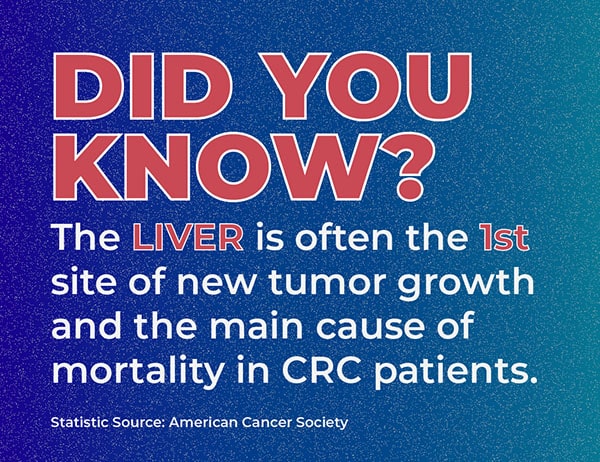 Researchers at the American University of Beirut in Lebanon wanted to find a solution. They collected samples from 3 groups of individuals: a healthy control group, a group with advanced CRC that did not have surgery and a group with liver metastasis.
Researchers at the American University of Beirut in Lebanon wanted to find a solution. They collected samples from 3 groups of individuals: a healthy control group, a group with advanced CRC that did not have surgery and a group with liver metastasis.
The group with liver metastasis was included as the liver is the first site of new tumor growth and the main cause of mortality in colorectal cancer patients.
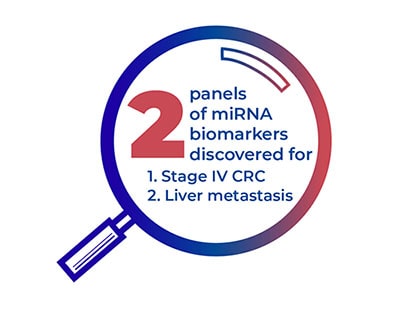 They proceeded to extract cell-free RNA from the plasma samples using a Plasma/Serum Circulating and Exosomal RNA Purification Kit. Using RT-qPCR, they evaluated the plasma for miRNA expression. The team identified 2 panels of microRNA biomarkers for the diagnosis of Stage IV CRC and liver metastasis, with diagnostic accuracies of 69% and 72% respectively.
They proceeded to extract cell-free RNA from the plasma samples using a Plasma/Serum Circulating and Exosomal RNA Purification Kit. Using RT-qPCR, they evaluated the plasma for miRNA expression. The team identified 2 panels of microRNA biomarkers for the diagnosis of Stage IV CRC and liver metastasis, with diagnostic accuracies of 69% and 72% respectively.
In other words, this technique of using plasma miRNA biomarkers is significantly more accurate than traditional methods for diagnosing CRC and liver metastasis.
The Critical First Step for Clinical Usage
While non-invasive liquid biopsies such as plasma, stool and urine are excellent sources of miRNA for biomarker discoveries, limitations are usually found within the methodology. In order for scientists to convert these research findings on cancer biomarkers into clinically useful tests, framework and protocol standardization within the methodology is a critical first step.
Why is Protocol Standardization Critical?
- The inconsistency in RNA extraction methods can impact how efficiently small and microRNAs are extracted and whether a complete profile of RNA species is able to be obtained.
- Not all RNA extraction methods have the ability to uniformly capture/bind circulating small RNA, which are essential for biomarker studies.
- Traditional silica-based technology exhibits a bias towards capturing RNA with high GC content and high molecular weight RNA leading to insufficient recoveries of small RNA or miRNA with low GC content.
- Disagreement on suitable house-keeping genes (reference genes) make differential expression analysis and biomarker discovery difficult to establish.
Further meta-analyses and collaborative studies will influence the standardized protocol and facilitate the advancement of these promising technologies.
The Big Picture
The implications of microRNA biomarkers from liquid biopsies are far-reaching and exciting for those within the clinical field, and for patients like Nina:
- The ability for early and precise detection of cancer (including CRC and associated liver metastasis).
- Non-invasive, painless and low-cost diagnosis.
- Eliminating the need for surgical tissue biopsies.
- Allowing for repeat monitoring and minimally invasive follow-ups.
These are just a few of the positive implications for microRNA biomarkers from liquid biopsies. We love hearing about the research our clients have conducted and the discoveries they have made! If you would like to share your story with us, feel free to contact info@norgenbiotek.com, or comment below.
Revised Oct 28, 2021: clarified that CRC makes up 10.2% of all global cancer cases, not 10.2% of the global population.
